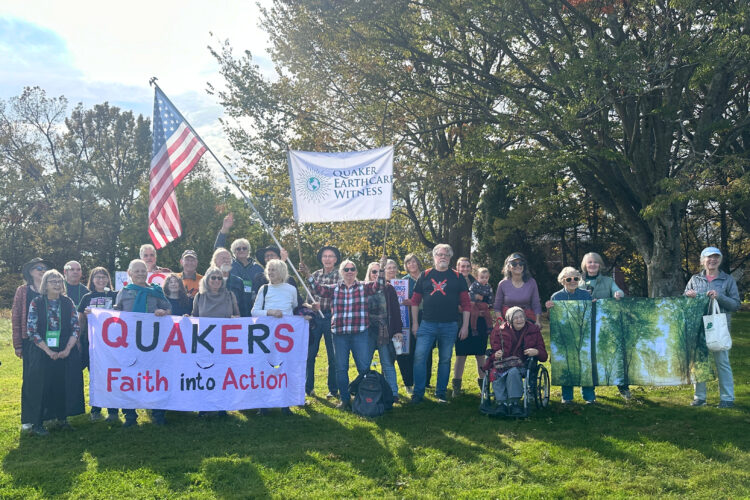Climate Change and Racial Justice

I experienced a great shot of inspiration and hope from the September People’s Climate March in New York —not just from the sheer size of the turnout (400,000!), but also from the diversity of the organizers and the participants. Marchers were like the city of New York itself—incredibly diverse according to race, ethnicity, age, and class. Hardcore labor activists marched with lab-coated scientists, Buddhists marched with Evangelicals (and even quite a few Quakers), and cowboys marched with Indians (the Cowboy Indian Alliance, or C.I.A.). I was delighted to see so many people coming together to raise our voices about climate change —recognizing that climate change impacts all of us and will continue to do so well into the future.
It is not hard to understand why this issue unites people, once they understand the implications. Although all of us will experience more severe and more frequent storms and/or droughts, rising sea level and shortages of fresh water, the impacts of climate change are likely to be felt more severely in poorer countries and within poorer communities here at home.
Communities at risk, often with high percentages of people of color and the socially and financially disadvantaged, have learned lessons from hurricanes Katrina and Rita, plus super-storm Sandy: those who suffered the most from these storms were most often those who did not have the resources to leave the area ahead of the storms and to rebuild afterwards. A recent poll showed that people identifying as Hispanic or African American are more likely to be concerned
about the impacts of climate change than white Americans (http://mic.com/articles/105120/new-poll-finds-something-surprising-about-race-and-climate-change).
Part of what makes climate change so intractable for many people is that despite the storms and droughts we are experiencing, greater impacts will be felt in the future and the impacts are likely to be more severe outside of the temperate zones where most of us live. As people of faith, we must care about future generations and people in distant lands.
Deirdre Smith, the Strategic Partnership Coordinator for 350.org wrote a provocative essay in the aftermath of the Michael Brown decision. She challenged us with the title, “Why the Climate Movement must stand with Ferguson.” You can read her essay at http://350.org/how-racial-justice-is-integral-to-confronting-climate-crisis/. A lack of indictments in the Michael Brown and Eric Garner cases raises issues of fairness and equality—do those outside the African American communities become allies or do they see this as someone else’s problem? She explains:
Demonization and the illusion of the “other” allows mainstream US to feel unaffected and disconnected to the employment of unacceptable and institutionally supported militarized violence. If we hope to build anything together and employ our combined power we must deny that anyone is an “other”—denying this pervasive cultural norm isn’t easy but it’s a central challenge we face.
I see breaking down the barrier of the “other” to be integral to both racial equality and climate change. We need to care about each other, whether our distance is measured in geography, time, race, or ethnicity, so that we can work together to create a fair and sustainable world. Deidre Smith says it better than I can:
Part of that work involves climate organizers acknowledging and understanding that our fight is not simply with the carbon in the sky, but with the powers on the ground … But solidarity and allyship is important in and of itself. The fossil fuel industry would love to see us siloed into believing that we can each win by ourselves on “single issues.” Now it’s time for the climate movement to show up—to to show that we will not stand for the “otherizing” of the black community here in America, or anyone else.
Whatever ethnicity you identify with and wherever you live, may we all find the courage and love to
embrace the “other” as we work together to create an equitable, caring, sustainable future.

